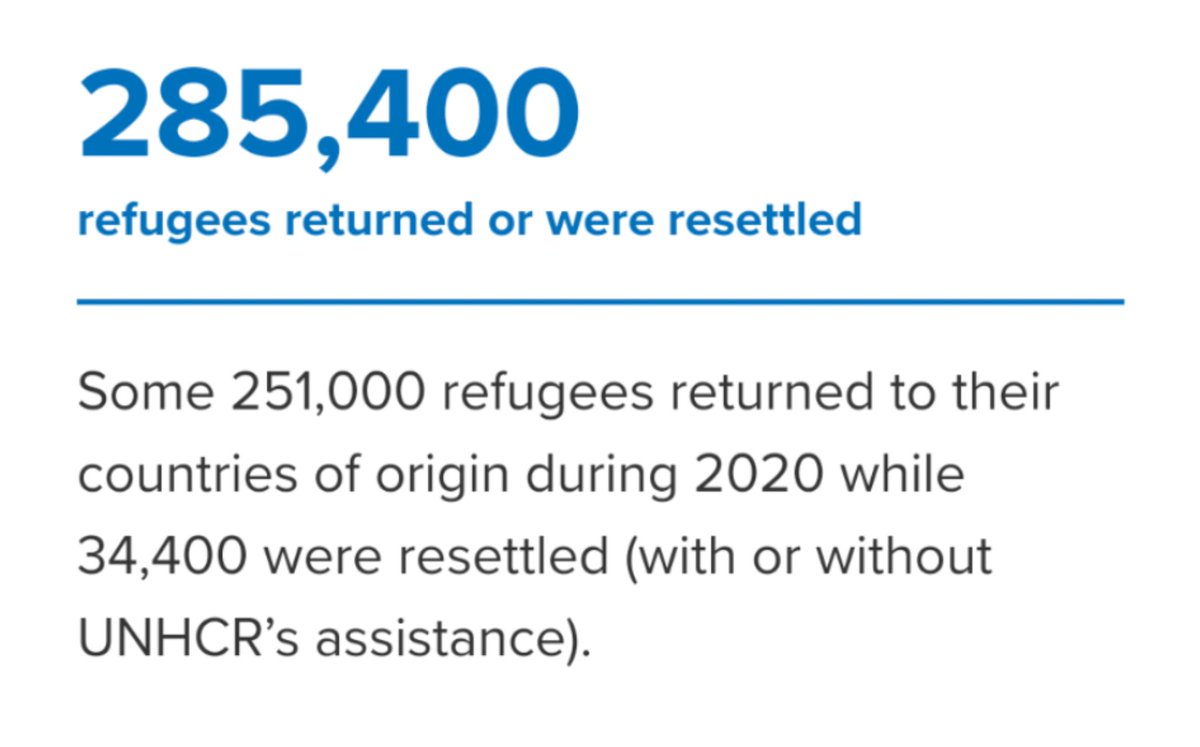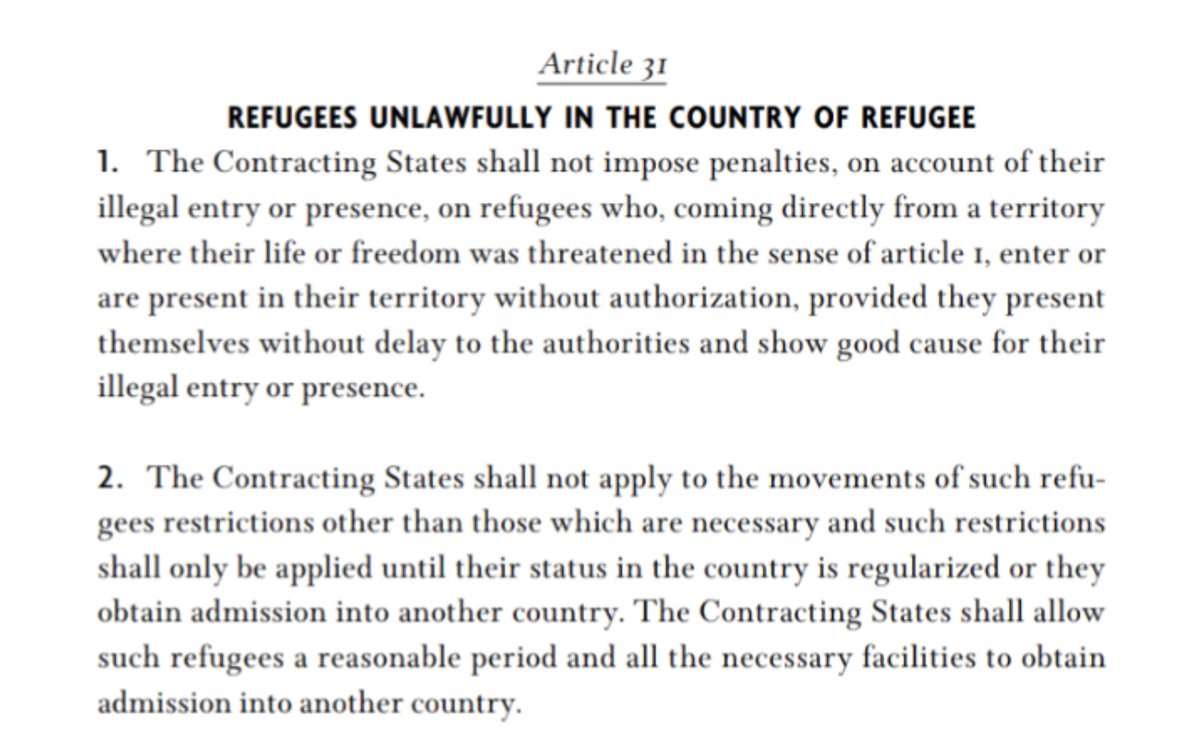Thread: It is #WorldRefugeeDay and the end of #RefugeeWeek2021 today, so seems like a good time to break down some myths about refugees and asylum seekers, particularly in the UK but also globally, regarding how they may or may not enter a country. 1/
There are roughly 82.4 million people displaced in the world at the moment. Most of them (about 48 millions) are trapped within their countries of displacement. They are known as "internally displaced persons" (IDPs) and routinely denied support. 2/
If they are "lucky" enough to be able to cross an international border they may be classed as refugees. 86% of the world's 20.7 million refugees live in developing countries. 73% live in countries neighbouring those that they fled. 3/
Not all refugees are asylum seekers though. To become an asylum seekers you need, as the name suggests, to be seeking asylum. Of the 20.7 million refugees in the world "only" 4.1 million are asylum seekers. 4/
unhcr.org/figures-at-a-g…
unhcr.org/figures-at-a-g…
Now you may have seen people talking about "resettlement routes" recently. Particularly in the UK the Home Secretary Priti Patel, and Home Office in general. Here's the problem. "Resettlement" sounds good, but there is a major issue which they keep skating over. 5/ 



Last year 34,400 people were resettled globally, only 353 in the UK. So we have gone down from 80 million displaced persons, nearly half of whom are children by the way, to 20.7 million refugees, to 4.1 million asylum seekers, to 34,400 of them being resettled. 6/ 



Resettlement, if implemented effectively, could obviously help improve the situation, but so long as governments use it to deflect from obligations to provide safety to refugees it loses a lot of efficacy, and will never be a complete solution. 7/
It is pretty obvious though why resettlement numbers are low, beyond just State's denying them, and why it can never be a full solution. People fleeing for their lives don't often have the luxury of waiting around filling in forms etc. 8/
The UK government, among others, likes to make a big deal of how it "resettles more refugees than any other country in Europe. Even so though it's existing schemes are fairly limited, particularly when you look at where majority of refugees come from. 9/ 







This is why international law makes it clear that refugees meeting the definition set out in the refugee convention should not be penalised for their manner of entry into a country. It recognises that people may not have the ability to enter a country by more "legal" means. 10/ 

That term "directly" has caused some confusion, such as saying people who travelled through "safe countries" could be denied asylum. It's been made clear "directly" allows for transit across other countries, and there are good reasons some may find those countries unsafe. 11/ 







People aren't seeking asylum "from" likes of France, but there are good reasons, such as level of attacks against them, that they may not feel safe in seeking it "in" those countries. This is something which can be addressed during a fair hearing of their asylum application. 12/
So, what about those applications. You may have seen people talking about channel crossings over the last year. They have undeniably increased, despite overall applications dropping to lowest levels since 2014. Thing is majority of those crossings result in an application. 13/ 



Of these the majority were successful, either on first application or appeal, although to be fair this number could change as delays in processing applications, despite lower numbers, now mean that the number of people waiting more than 6 months for a decision. 14/ 



Despite Home Office claims about "resettling more refugees" than any other European country, we've seen how few places resettlement actually accounts for. It's a nice bit of obfuscation, but it doesn't show reality of how few refugees UK actually takes in the grand scheme. 15/ 



We obviously need more resettlement routes, but those routes need to be effective which without at least a target of 10,000 they won't be, and those routes cannot be used to discriminate against asylum seekers who don't use them for a myriad of reasons. 16/ 

• • •
Missing some Tweet in this thread? You can try to
force a refresh








